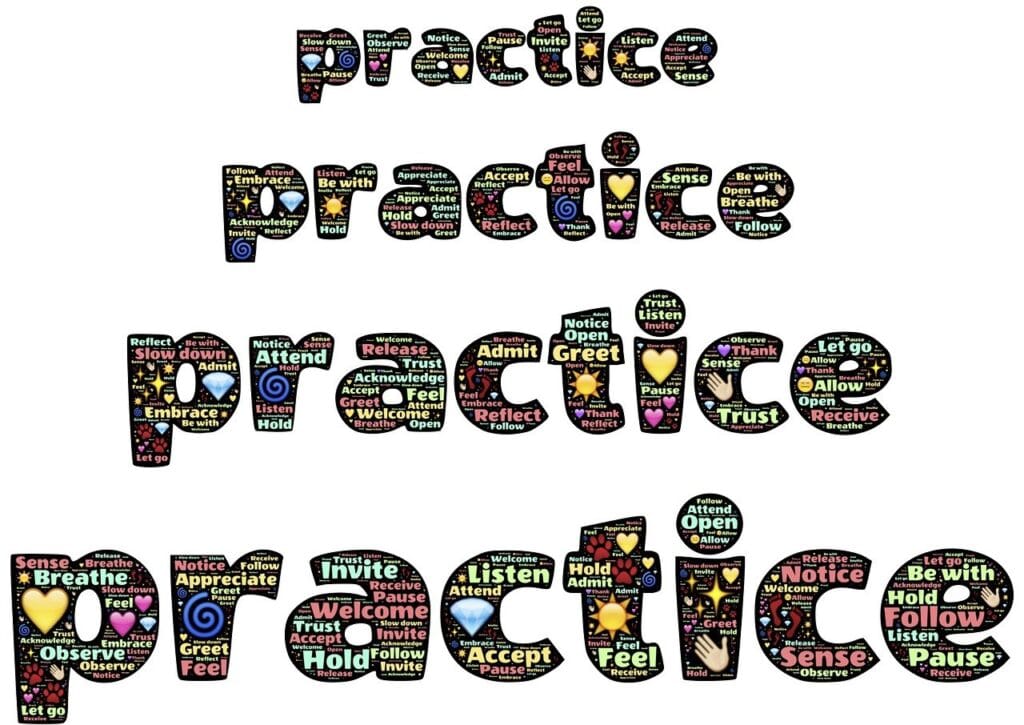In today’s increasingly connected world, the ability to learn a new language is one of the most rewarding skills you can develop. Whether you’re aiming to boost your career, travel with confidence, or simply challenge yourself intellectually, learning a new language opens doors to cultures, ideas, and opportunities you might not have explored otherwise.
But let’s face it: mastering a foreign language is no easy feat. It requires dedication, consistent effort, and the right strategies. In this guide, we’ll dive into the practical steps you can take to not only learn a new language but also enjoy the process.
Why Should You Learn a New Language?
Learning a new language is more than just a tool for communication; it’s an enriching life experience. For starters, it improves your cognitive abilities, such as problem-solving skills and memory retention. Research has shown that bilingual individuals have better multitasking abilities and may even delay the onset of cognitive decline in later life. Beyond that, being fluent in a new language can also increase your job prospects. Many industries, particularly in global markets, value multilingual employees who can bridge cultural and communication gaps.
Not to mention, learning a new language enhances travel experiences. Instead of relying on translations, you can engage in more meaningful interactions with locals, fully immersing yourself in a different culture. Furthermore, new languages open doors to a world of entertainment, literature, and music that may not be accessible through translations alone.
Finding Your Motivation to Learn a New Language
Before you embark on the journey, it’s essential to establish why you want to learn a new language. Do you want to travel abroad and connect with locals? Are you looking to improve your career prospects by becoming bilingual? Or perhaps you’re fascinated by the culture and history of a particular country?
Identifying your motivation will help you stay focused and committed. Keep that reason front and center throughout the learning process. Remember, progress in language learning doesn’t happen overnight, so staying motivated is crucial.
Choose the Right Language-Learning Method
There are countless ways to approach learning a new language, and the right method for you will depend on your goals, learning style, and the language you’re pursuing. Some of the most popular methods include:
- Language Apps: Tools like Duolingo, Babbel, and Memrise are great for beginners. These platforms break down the learning process into bite-sized lessons, making it easier to fit into a busy schedule.
- Online Courses: Websites like Coursera or EdX offer structured courses taught by language experts. They often come with video lessons, quizzes, and community support.
- Language Exchange: If you want to practice speaking with a native speaker, consider platforms like Tandem or HelloTalk, where you can engage in real conversations with people from around the world.
- Traditional Classes: Local community centers or language schools offer structured, in-person classes with certified instructors. This method is great if you prefer a classroom environment and direct feedback.
Each method has its pros and cons, so you may want to experiment with a combination of approaches to find what works best for you.
Immerse Yourself in the Language
To truly learn a new language, immersion is key. Even if you can’t travel to a country where the language is spoken, there are still ways to surround yourself with it:
- Watch Movies and TV Shows: Streaming services like Netflix or Amazon Prime offer foreign-language films and TV shows. Watching these with subtitles helps you pick up on phrases, pronunciation, and cultural nuances.
- Listen to Music and Podcasts: Spotify and Apple Music offer curated playlists and language-learning podcasts to immerse you in a foreign language during your daily commute or workout.
- Read Books and News: Start with children’s books or news websites tailored to language learners, such as Lingua or graded readers designed for beginners.
Immersion accelerates the learning process by forcing you to think in the new language rather than constantly translating in your head.
Set Realistic and Measurable Goals
Setting clear, attainable goals is essential when learning a new language. Instead of vaguely saying, “I want to speak Spanish,” try breaking it down into specific, measurable objectives. For example, you could aim to learn 100 new words a month or hold a 5-minute conversation by the end of three months.
Tracking your progress will not only motivate you but also make the journey more rewarding. There are various language apps and journals available to help you keep tabs on how far you’ve come.
Daily Practice is Key
Consistency is perhaps the most critical element when learning a new language. A common mistake is dedicating a lot of time to study once a week rather than practicing a little bit every day. Short, daily sessions reinforce what you’ve learned and help your brain retain new information.
Here are a few easy ways to practice daily:
- Set aside 15-30 minutes each day for focused study.
- Use flashcards or apps like Anki to memorize vocabulary.
- Practice speaking with yourself by describing your surroundings or your daily routine in the new language.
- If possible, engage in brief conversations with native speakers online or in person.
Overcome the Fear of Speaking
One of the biggest hurdles when learning a new language is the fear of making mistakes, especially when speaking. It’s natural to feel nervous, but the best way to improve is by practicing with others. The more you speak, the more confident and fluent you’ll become. Remember that making mistakes is part of the learning process.
Joining language exchange programs like Conversation Exchange or attending language meetups are great ways to gain confidence in your speaking skills.
The Role of Culture in Language Learning
Language is deeply tied to culture. When you learn a new language, you’re also learning about the traditions, values, and history of the people who speak it. Taking time to understand the culture can make learning the language more meaningful and enjoyable. Plus, it helps you navigate cultural nuances that may not always be obvious in the language itself.
Engage with cultural materials like movies, music, or books to deepen your understanding of both the language and its context.
Leverage Technology for Language Learning
In today’s digital age, technology has transformed the way we learn languages. From mobile apps that make learning fun to AI-powered tutors, the resources available are almost endless. Some popular tech tools for language learning include:
- Speech Recognition Software: Apps like Babbel use speech recognition technology to help you practice pronunciation.
- AI Chatbots: Platforms like Mondly use AI chatbots to engage learners in realistic conversations, simulating dialogues with native speakers.
- Virtual Reality: VR tools like ImmerseMe create immersive environments where you can practice speaking a new language in various settings, from ordering food in a restaurant to navigating an airport.
By taking advantage of these tools, you can tailor your learning experience and make the journey more interactive and efficient.
Incorporating a New Language into Your Daily Life
Once you’ve started learning a new language, find ways to incorporate it into your everyday life. Label household items with their names in the target language, change your phone’s language settings, or follow influencers and bloggers who speak the language on social media. These small changes will help reinforce your learning daily.
Conclusion
Learning a new language is not just a skill; it’s a lifelong journey that brings countless personal and professional benefits. With the right strategies and mindset, anyone can master a new language. Start today by setting clear goals, practicing daily, immersing yourself in the language and culture, and using technology to your advantage.
The world of language learning is vast and full of opportunities, so take the first step now, and soon you’ll be amazed at the progress you’ve made.
FAQs
How long does it take to learn a new language?
The time it takes varies depending on factors like the complexity of the language and the amount of time you dedicate daily. However, with consistent practice, conversational fluency can be achieved in as little as six months.
Can I learn a new language without immersion?
Yes, while immersion helps, it’s not necessary to live in a foreign country to learn a new language. Regular practice through apps, speaking with native speakers online, and engaging with media in the language can substitute immersion.
What is the best app for language learning?
There isn’t a one-size-fits-all answer. Apps like Duolingo and Babbel are excellent for beginners, while HelloTalk and Tandem are great for practicing conversation with native speakers.
How do I stay motivated while learning a language?
Set clear, achievable goals, track your progress, and remind yourself of why you wanted to learn the language in the first place. Engaging with the culture and making the process fun will also keep you motivated.
Can I learn two languages at the same time?
While it’s possible, it can be challenging and may slow down your progress in both languages. It’s usually better to focus on mastering one language first before moving on to another.
Should I focus more on speaking or writing when learning a language?
It depends on your goals. If you’re aiming for conversational fluency, focus on speaking. However, writing is equally important if you want to be proficient in formal communication.


















